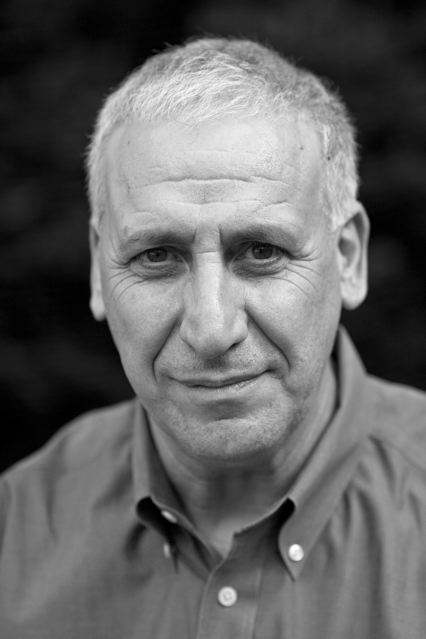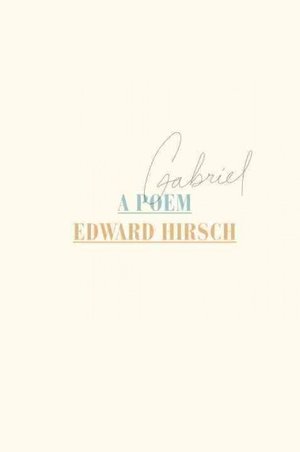Interview: Edward Hirsch
 Midwestern Gothic staffer Hannah Bates talked with acclaimed poet Edward Hirsch about his Chicago accent, echoing Dante, poetry as a form of necessary speech, and more.
Midwestern Gothic staffer Hannah Bates talked with acclaimed poet Edward Hirsch about his Chicago accent, echoing Dante, poetry as a form of necessary speech, and more.
(Photo copyright (c) Julie-Dermansky)
**
- Hannah Bates: What’s your connection to the Midwest?
Edward Hirsch: I was born and raised in Chicago, where most of my family still lives. I went to college in Grinnell, Iowa. And my first college teaching job was in Detroit. I think that counts as a “connection.”
HB: Your accent is said to “give away” your Chicago origin. What about the city and the Midwest in general has influenced you, despite living in various other American cities with strong cultures, like Houston or Brooklyn?
EH: I don’t know—it’s all tangled up with my childhood. I was shaped by the people—their values, their directness. Everyone I knew had a strong bullshit detector. When I think of a diverse city, a city of neighborhoods, a place filled with immigrants, Chicago is still my model. It’s a city on a lake, a hub, a place people came to reinvent themselves. I like Houston, which is a much newer city, and Brooklyn, which has its own history, but Chicago set my standard. It’s the first city of all my work.
HB: Your book-length poem Gabriel is about the life and death of your son. How can the writing process help people remember and grieve? Why is writing so powerful in that respect?
 EH: Writing forces you to come to terms with your feelings, to record and transform them. It gives you something to do with your grief, like saying Kaddish every day. When it comes to grief, as with so much in life, the only way out is through.
EH: Writing forces you to come to terms with your feelings, to record and transform them. It gives you something to do with your grief, like saying Kaddish every day. When it comes to grief, as with so much in life, the only way out is through.
HB: In Gabriel, you write in tercets. How do you decide which stanza length or form to use when writing poetry? What kind of weight to these seemingly arbitrary choices carry in a poem?
EH: I was trying to create a propulsive moment, a poem that could turn quickly. My first decision was to try to create something of Gabriel’s impulsivity by writing without punctuation. I made the decision write in three-line stanzas to give it some kind of unfolding shape. Every stanzas has a beginning, a middle, and an end. Some of the stanzas are intact, like individual haiku, others build out into a larger narrative. I liked the echo of Dante.
HB: You mentioned in an interview with The New Yorker that, “Your job is to write about the life you actually have.” Does this reflect a certain mantra that guides your writing?
EH: Yes, because I tend to be a poet of experience. It would have been nice to write like Keats, but that’s really not my job.
HB: You published A Poet’s Glossary in 2014, which breaks down the elements, techniques and styles of writing poems. Why is it important to you that people are exposed to and understand poetry?
EH: Poetry is a human fundamental, like music. It is a form of necessary speech, a way of knowing, which predates literacy and precedes prose in all literatures. There has probably never been a culture without it. I think poetry brings a crucial kind of information, a message from the interior, which is important for our lives.
HB: You’ve been writing poetry for more than 40 years, and you have also taught writing and English at the collegiate level. What advice can you give to young poets who are looking for inspiration for their own writing?
EH: It’s absolutely crucial to find models in other poets, to read widely, to put yourself under the influence. There are no great writers who were not first of all great readers. You can only find yourself by traveling through the work of others, living and dead.
**
Edward Hirsch, a MacArthur Fellow, has published nine books of poems, most recently Gabriel: A Poem (2014), a book-length elegy, and The Living Fire: New and Selected Poems (2010), which brings together thirty-five years of work. He has also published five prose books, among them A Poet’s Glossary (2014), a complete compendium, and How to Read a Poem and Fall in Love with Poetry (1999), a national bestseller. He is president of the John Simon Guggenheim Memorial Foundation.






